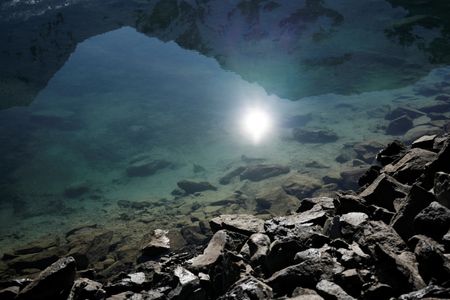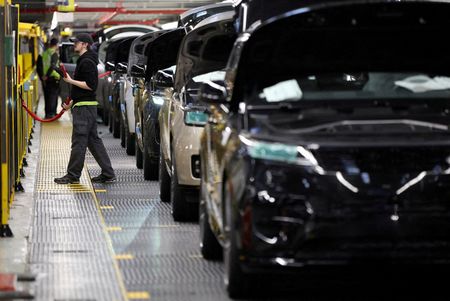By Elke Ahlswede and Riham Alkousaa
HAMM, Germany (Reuters) -A German court on Wednesday threw out a Peruvian farmer’s lawsuit seeking damages from German utility RWE for allegedly putting his home at risk through climate change, as a damage-risk estimate was too small to take the case further.
The court said no appeal was possible in the widely followed, decade-old case of farmer Saul Luciano Lliuya, claiming that RWE’s emissions contributed to the melting of Andean glaciers and to a higher flood risk for his home.
Presiding judge Rolf Meyer, at the court in the western city of Hamm, said experts’ estimate of the 30-year damage risk to the plaintiff’s house of 1% was not enough to take the case further.
Had there been a larger adverse effect, a polluter could have been made to slash emissions or pay damages, Meyer said.
Meyer said the plaintiff’s case was argued coherently and that it was “like a microcosm of the world’s problems between people of the southern and the northern hemisphere, between the poor and the rich.”
Germanwatch, an environmental and human rights advocacy group supporting the litigation, cited Lliuya’s lawyer Roda Verheyen as saying the case would encourage more lawsuits.
“What the court said today means that other people can bring other cases, other people who are affected by climate change, and can draw on that principle,” Noah Walker-Crawford, a researcher at London School of Economics Grantham Research Institute, said after the verdict.
However, RWE, which is phasing out its coal-fired power plants, said the attempt to create a legal precedent had failed.
“We regard it as an entirely misplaced approach to turn courtrooms into a forum for NGOs’ demands on climate protection policies,” the utility said in a statement.
‘BIG STEP FORWARD’
RWE said it was on track to become climate neutral by 2040 and that the German industrial sector overall had progressed well in cutting CO2 emissions compared with other countries.
Using data from the Carbon Majors database, which tracks historic emissions from major fossil fuel producers, Lliuya has previously claimed RWE was responsible for nearly 0.5% of global man-made emissions since the industrial revolution and must pay a proportionate share of the costs to adapt to climate change.
For a $3.5 million flood defence project needed in his region, RWE’s share would be around $17,500, according to Lliuya’s calculations.
The 44-year-old farmer, whose family grows corn, wheat, barley and potatoes outside Huaraz, was not in court on Wednesday. He has said he chose to sue RWE, rather than any company projects near his home, because it is one of the biggest polluters in Europe.
Speaking to reporters from a hotel in his hometown of Huaraz, Lliuya said that even though the court threw out the case, it was a step forward for climate justice.
“From the beginning we wanted to set a precedent to hold companies responsible,” Lliuya said. “We didn’t get everything, but this was a big step forward for other lawsuits.”
(Writing by Ludwig Burger and Alexander Villegas; Additional reporting by Tom Kaeckenhoff; Additional reporting by Alferdo Galarza in Huaraz; Editing by Rachel More and Bernadette Baum)















